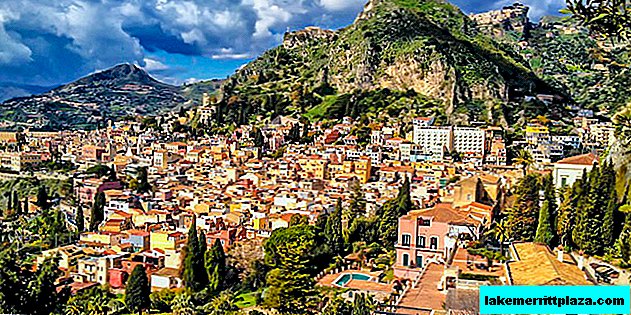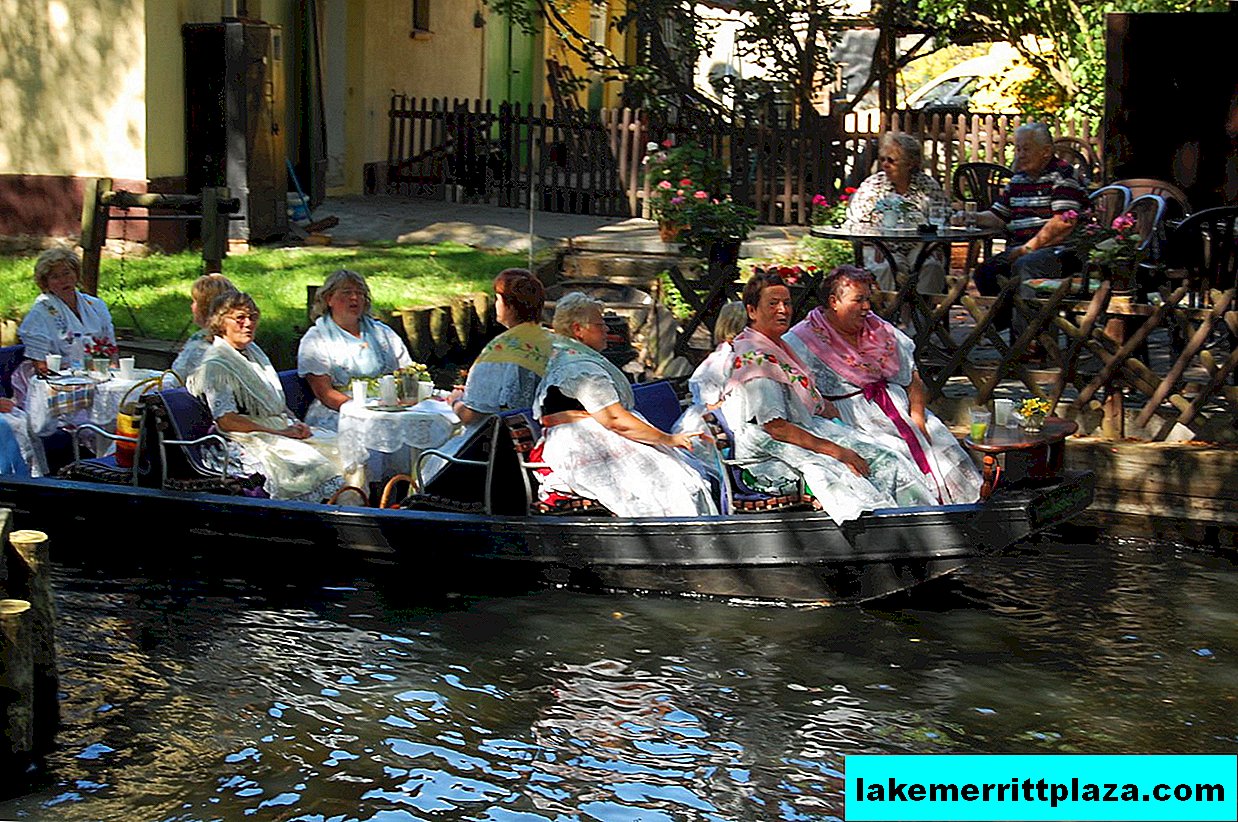This lesson is about language etiquette. Consider the minimum set of rules of the Italian language, thanks to which the traveler will be able to politely ask for directions, inquire about the cost of tickets and time, or make a pleasant acquaintance in Italy.
Greetings and Farewell
The main word of Italian language etiquette is the CIAO greeting! We are used to using this easy word as a symbol of farewell. And in Italy, it has universal significance - a friendly "hello" or a friendly "see you".
- CIAO! - HI BYE!
If we consider greetings regarding the time of day, then we can distinguish the following several most used phrases. It is noteworthy that the Italians never say "Good morning", they meet the dawn with the words:
- BUON GIORNO - GOOD DAY (Bon Jorno)
Evening greeting:
- BUONA SERA - GOOD EVENING (“Buona Sera”)
Variations on the theme:
- BUONA SERA, SIGNORINA - GOOD EVENING (address to the woman)
- BUONA SERA, SIGNOR - GOOD EVENING (address to the man)
- BUONA SERA, CARI SIGNORI - GOOD EVENING (appeal to a group of persons).
Farewell to the night:
- BUONA NOTTE - GOOD NIGHT (Buona Notte)
Farewell to any time of day:
- ARRIVEDERCI - GOODBYE (Arrivederchi)
Acquaintance
The main word of the Italian language in the issue of meeting a person is:
- PIACERE - PLEASURE, reads like "Piachere"
Also PIACERE - NICE TO MEET YOU.
Ask a person "How are you?" Can I use the phrase COME STAI? If the interlocutor requires a more respectful treatment, then:
- COME STA? (LEI) - HOW ARE YOU? (LEI - YOURS)
It is customary to answer a similar question:
- IO STO BENE - ME IS ORDERED, ME IS EVERYTHING GOOD ("Io hundred bene"), whereBene - OK
Note that in the last three sentences in different forms there is a verb
- STARE - TO BE, TO FEEL YOURSELF ("Old")
- STAI, STA, STO - personal forms of the verb STARE ("Flocks, Hundred, Hundred")
Since Italians live brightly and enjoy life as much as possible, they often say:
- MOLTO BENE, IO STO MOLTO BENE - VERY WELL, I HAVE EVERYTHING VERY WELL
- Molto - VERY (Molto)
If there are any problems in life, then:
- MOLTO MALE, IO STO MOLTO MALE - VERY BAD, I HAVE EVERYTHING VERY BAD
- Male - BAD ("Male")
There are times when life is frozen in an indefinite position:
- Cosi-cosi - SO MYSELF ("Kozi-Kozi")
- The word itself Cosi means SO
Thanks
Having asked someone for help, the traveler should be able to thank the person in response:
- Grazie - THANKS (Grace)
In response, the Italian will tell you:
- PREGO - PLEASE ("Prego")
By the way, if you want to pronounce a phrase starting with "Please ...", you should also use PREGO. And also PREGO can be used as a verb PLEASE.
In case of annoying misunderstanding, you can apologize as follows:
- Scusi - ASK FORGIVENESS ("Scoozy")
- Scusi is a particular form of the verb SCUSARE - SORRY (indefinite form of "Skuzare")
- IO SCUSO - Sorry
- TU SCUSI - YOU apologize
How to introduce yourself
The easiest way to get to know or share your data is with the phrase:
- MI CHIAMO - MY NAME ("Mi Kyamo")
- Verb CHIAMARE - CALL, CALL, CALL, read "Chiamare"
- COME TI CHIAMI? - WHAT IS YOUR NAME? ("Coma Ti Chiami")
In order to be able to present yourself in the company of welcoming Italians, you will need 2 of the most important verbs: to be and do.
Verb BE
Irregular verb ESSERE - BE (Essay) helps to talk about who a person is. It is conjugated as follows:
- IO SONO - I AM ("Io Sono")
- TU SEI - YOU ARE ("Tu Sei")
- LUI Ѐ - YOU ARE (in relation to a man), read "Louis E"
- LEI Ѐ - YOU ARE (regarding a woman), read "Lei E"
- LEI Ѐ - YOU ARE (respectful form), read "Lei E"
- NOI SIAMO - WE ARE ("Noah Syamo")
- VOI SIETE - YOU HAVE ("Howl Eat")
- LORO SONO - THEY ARE ("Loro Sono")
Examples:
- DOVE Ѐ LEI? - WHERE IS SHE? ("Dove E. Lei")
- CHI Ѐ LUI? - WHO IS HE? (Ki-Louis)
- CHI Ѐ LEI? - WHO IS SHE? ("Ki E Lei")
- CHI TU SEI? - WHO ARE YOU? ("Ki Tu Sei")
To the question CHI TU SEI? - WHO ARE YOU? a person can tell about his profession, who he sees himself in this life. The answer should be based on the structure: IO SONO ..., where instead of ellipsis you can specify a specific type of activity, for example, an actor: IO SONO ATTORE.
- DOVE TU ABBITI? - WHERE DO YOU LIVE? Answer: IO ABBITO A ... - I LIVE IN ...
Having slightly complicated the sentence, you can answer like this:
- IO ABBITO E LAVORO A ... “I LIVE AND WORK IN ... where E - union And
If you need to use a variable union OR, then say O.
Example:
- ESSERE O NON ESSERE, - TO BE OR NOT TO BE?
Union BUT
- MA - BUT
Example:
- IO ABBOTO, MA NON LAVORO A ... - I LIVE, BUT I DO NOT WORK IN ...
Affirmation and Denial
- SI - YES
- NO - NOT
If a
Consume SE - IF ("Se").
Example:
- SE TU NON LAVORI, NON MANGI - IF YOU DON'T WORK, YOU WILL NOT BE THERE ("Se Tu Non Non Lavori, Non Manji").
Verb DO
FARE - DO also belongs to the group of irregular verbs of the Italian language.
- IO FACCIO - I DO, read like "Io Faccio"
- TU FAI - YOU DO (Tu Fai)
- LUI FA - HE DOES
- LEI FA - IT DOES
- LEI FA - YOU DO (respectfully)
- NOI FACCIAMO - WE DO ("Noi Facciamo")
- VOI FATE - YOU DO ("Voi Fate")
- LORO FANNO - THEY DO ("Loro Fanno")
Example:
- CHE TU FAI? - WHAT ARE YOU DOING?
To give the phrase more emotions will help the particle MA in the meaning of NU.
- MA CHE TU FAI? - Well, what are you doing?
Defining word is
- QUESTO - THIS, read "Questo"
Example:
- CHE COSA Ѐ QUESTO - WHAT IS IT?
- CHE Ѐ QUESTO? -WHO IS IT?
- MA PERCHE TU FAI Ѐ QUESTO? - WHY ARE YOU DOING THIS?
Using the phrases learned in this lesson, you can politely and effortlessly start a conversation, tell a little about yourself, learn something about the interlocutor. 2 verbs, often used in the everyday life of any Italian, were also examined in sufficient detail.








